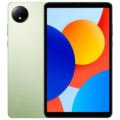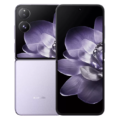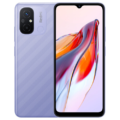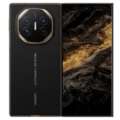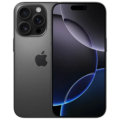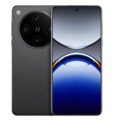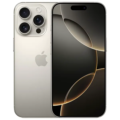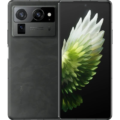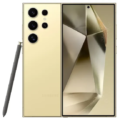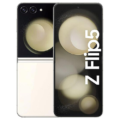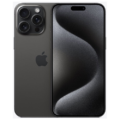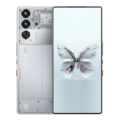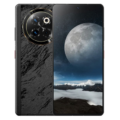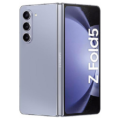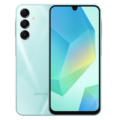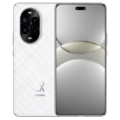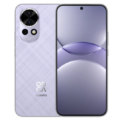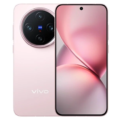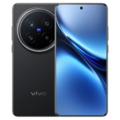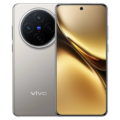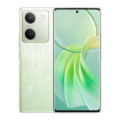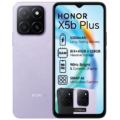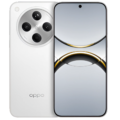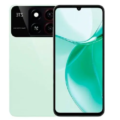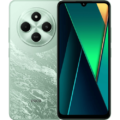Xiaomi Redmi K60 ( 128GB 8GB RAM Dual SIM Blue)
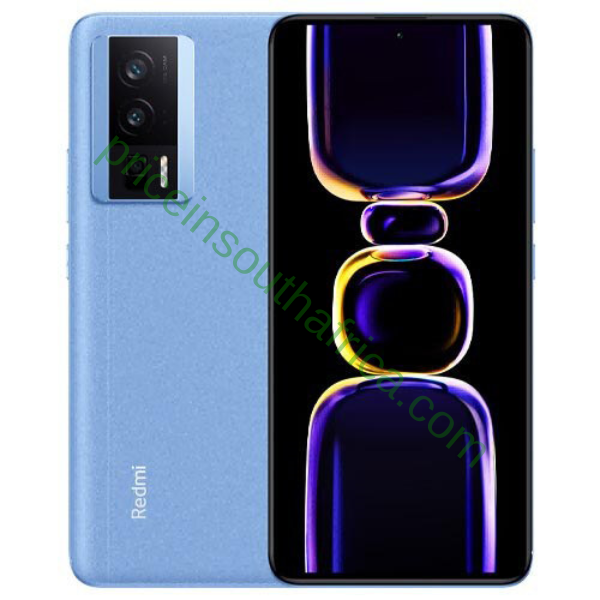





-
CPU: Octa-core (1x3.0 GHz Cortex-X2 & 3x2.5 GHz Cortex-A710 & 4x1.80 GHz Cortex-A510)
-
RAM: 8GB/12GB
-
Storage: 128GB/256GB/512GB
-
Display: OLED, 68B colors, 120Hz, Dolby Vision, HDR10+, 1400 nits (peak)
-
Camera: 64MP
-
OS: Android 13, MIUI 14
Xiaomi Redmi K60 Price in South Africa is starting from Rand 10,000. Xiaomi Redmi K60 is a series of Android-based smartphones manufactured by Xiaomi, the phone was announced December 2022 and released in January 2023. Xiaomi Redmi K60 runs Android 13 operating system under MIUI 14 user interface powered by Qualcomm SM8475 Snapdragon 8+ Gen 1 chipset, Octa-core 1×3.0 GHz Cortex-X2 & 3×2.5 GHz Cortex-A710 & 4×1.80 GHz Cortex-A510 CPU speed and Adreno 730 graphic processing unit.
Xiaomi Redmi K60 has OLED display type of 6.67 inches with screen resolution of 1440 x 3200 pixels. The phone is available in internal storages option of 128GB, 256GB and 512GB supported by 8GB to 16GB of RAM. Xiaomi Redmi K60 has triple main cameras of 64 megapixels wide camera, 8 megapixels ultrawide camera and 2 megapixels macro camera on other side the phone has selfie camera of of 16 megapixels wide camera.
Xiaomi Redmi K60 Pro has battery capacity of 5000 mAh which is non-removable with 67W wired fast charge. The phone has optical fingerprint sensors under display also has proximity, compass and color spectrum. Xiaomi Redmi K60 Pro is available in three colors including Black, White, Blue and Green.
How much is Xiaomi Redmi K60 now in South Africa?
Xiaomi Redmi K60 Price in South Africa is starting from Rand 10,000.
What type of display does Xiaomi Redmi K60 have?
Xiaomi Redmi K60 has OLED display type of 6.67 inches with screen resolution of 1440 x 3200 pixels.
How much storage and RAM does Xiaomi Redmi K60 have?
Xiaomi Redmi K60 is available in internal storages option of 128GB, 256GB and 512GB supported by 8GB to 16GB of RAM.
How many megapixels is the camera on the Xiaomi Redmi K60?
Xiaomi Redmi K60 has triple main cameras of 64 megapixels wide camera, 8 megapixels ultrawide camera and 2 megapixels macro camera on other side the phone has selfie camera of of 16 megapixels wide camera.
What size battery is in the Xiaomi Redmi K60?
Xiaomi Redmi K60 has battery capacity of 5000 mAh which is non-removable with 67W wired fast charge.
It's Full Specifications
General
| Brand | Xiaomi |
| Model | Xiaomi Redmi K60 Price in South Africa |
| Announced | 27 December, 2022 |
| Released | 01 January, 2023 |
| Status | Available |
| Price | ZAR 10,000 |
Design
| Type Design Type called form factor refers to a mobile phone's size, shape, and style as well as the layout and position of major components of phone. There are three major form factors seen in mobile phones => bar phones, folding phones and sliding phones. | Bar |
| Dimensions | 162.8 x 75.4 x 8.6 mm or 8.8 mm |
| Weight | 199 g or 204 g (7.02 oz) |
| Colors | Black, White, Blue, Green |
Network
| 2G Network | |
| 3G Network | |
| 4G Network | |
| 5G Network | |
| SIM SIM (Subscriber Identity Module) is a small card that contains mobile network subscriber's account information. This allows the phone using the card to attach to a mobile network. The SIM card is most commonly associated with GSM and UMTS mobile networks. Moving a SIM card from one phone to another allows a subscriber to switch mobile phones without having to contact their mobile network carrier. SIM cards can also be used by a phone to store limited amounts of data, such as phone numbers and text messages. | Dual SIM (Nano-SIM, dual stand-by) |
Display
| Display Type Display Technology => A number of display technologies and types used in mobile phones => TFT (Thin Film Transistor), IPS (In-Place Switching), OLED (Organic Light Emitting Diode), AMOLED (Active-Matrix Organic Light-Emitting Diode), Super AMOLED (an even advanced version of AMOLED), Resistive Touchscreen (Resistive touchscreens contain two layer of conductive material with a very small gap between them which acts as a resistance), Capacitive Touchsceen (Capacitive touchscreen technology consists of a layer of glass coated with a transparent conductor) | OLED, 68B colors, 120Hz, Dolby Vision, HDR10+, 1400 nits (peak) |
| Size | 6.67 inches, 107.4 cm2 (~87.5% screen-to-body ratio) |
| Resolution | 1440 x 3200 pixels, 20:9 ratio (~526 ppi density) |
Media
| Audio Playback | |
| Video Playback | |
| FM Radio | No |
| Ring Tones | |
| Loudspeaker |
Camera
| Main Camera Camera is able to capture photographs and usually videos, The most important characteristics of a camera are the resolution (measured in megapixels), lens focus type (fixed or automatic), higher megapixel cameras are known to capture higher quality photos, but not always a good measurement of the photos quality. |
64 MP, f/1.8, (wide), 1/2.0", 0.7µm, PDAF, OIS 8 MP, f/2.2, 120˚ (ultrawide), 1/4.0", 1.12µm 2 MP, f/2.4, (macro) |
| Camera Features | HDR |
| Video | 1080p@30/60/120fps |
| Selfie Camera | 16 MP, f/2.5, (wide), 1/3.06", 1.0µm |
| Camera Features | HDR |
| Video | 1080p@30/60/120fps |
Software
| Operating System OS => Every computer system run on a base software called Operating System (OS). Operating System controls all basic operations of the computer (such as smartphone, PDAs, tablet computers and other handheld devices). The Operating System allows the user to install and run third party applications (apps), apps are used to add new functionality to the device. | Android 13 |
| User Interface UI or user interface of a device is the look and feel of the on-screen menu system. How it works, its color scheme, how it responds to button presses, all of these things are part of the user interface. | MIUI 14 |
Hardware
| Chipset Chipset is a group of integrated circuits designed to perform one or a more dedicated functions, often with real time computing constraints, Popular smartphones are equipped with more advanced embedded chipsets that can do many different tasks depending on their programming. | Qualcomm SM8475 Snapdragon 8+ Gen 1 (4 nm) |
| CPU CPU (Central Processing Unit) mostly known as processors, CPU processes instructions in order to carry out certain functions that make your device operate properly. Processors are often described as the brain of computers, smartphones and tablets, Smartphones and tablets rely on processors to carry out their every task, Processors are an incredibly important factor in selecting any type of computing device, including your smartphone. | Octa-core (1x3.0 GHz Cortex-X2 & 3x2.5 GHz Cortex-A710 & 4x1.80 GHz Cortex-A510) |
| GPU GPU (Graphics Processing Unit) is a single-chip processor designed to rapidly manipulate and alter memory to accelerate the creation of images in a frame buffer intended for output to a display, This includes things such as lighting effects, object transformations, and 3D motion. | Adreno 730 |
| RAM (Memory) RAM (Random Access Memory) is a type of computer memory that can be accessed randomly, any byte of memory can be accessed without touching the preceding bytes that allows information to be stored and accessed quickly from random locations. RAM is the most common type of memory found in computer systems, smartphones, tablets and other electronic devices. | 8GB-16GB |
| Internal Storage Internal Storage is a data storage space (flash memory) mostly used in smartphones, tablets and other electronic devices where operating system, apps, music, photos, videos, files and other user data Is stored. | 256GB/512GB/1TB |
| Card Slot Memory Card Slot is a special slot for inserting a memory card. Memory cards allow you to expand the phone's built-in memory, A memory card (sometimes called a flash memory card or a storage card) is a small storage medium used to store data such as text, pictures, audio, and video, for use on small, portable or remote computing devices such as mobile phones, mp3 players, digital cameras. | No |
| Sensors Sensors are electronic components that detects and responds to some type of input from the physical environment. The specific input could be light, heat, motion, moisture, pressure and location, The output is generally a signal that is converted to use in computing systems, a location sensor, such as a GPS receiver is able to detect current location of your electronic device. | Fingerprint (under display, optical), accelerometer, gyro, proximity, compass, color spectrum |
Connectivity
| Bluetooth Bluetooth is a wireless communications technology for exchanging data between mobile phones, headsets, computers and other network devices over short distances without wires, Bluetooth technology was primarily designed to support simple wireless networking of personal consumer devices. | 5.3, A2DP, LE |
| Wi-fi Wi-Fi is a popular wireless networking technology using radio waves to provide high-speed network connections that allows devices to communicate without cords or cables, Wi-Fi is increasingly becoming the preferred mode of internet connectivity all over the world. | Wi-Fi 802.11 a/b/g/n/ac/6e, dual-band, Wi-Fi Direct |
| Wi-fi Hotspot | |
| USB | USB Type-C 2.0, OTG |
| Positioning GPS The Global Positioning System is a satellite-based radio navigation system, GPS permits users to determine their position, velocity and the time 24 hours a day, in all weather, anywhere in the world, In order to locate your position, your device or GPS receiver must have a clear view of the sky. | GPS (L1), GLONASS (G1), BDS (B1I+B1c), GALILEO (E1), QZSS (L1) |
| NFC NFC (Near field communication) is a set of standards for smartphones and similar devices to establish peer-to-peer radio communications with each other by touching them together or bringing them into proximity, usually no more than a few inches. |
Battery
| Battery Type Battery Type => Cell phones run on various kinds of batteries depending on the manufacturer, phone size or shape and features. There are basically four types of cell phone batteries => Lithium Polymer, Lithium Ion, Nickel Metal Hydride and Nickel Cadmium. | Li-Po 5500 mAh, non-removable |
| Charging Wireless Charging (Inductive Charging) uses an electromagnetic field to transfer energy between two objects. This is usually done with a charging station. Energy is sent through an inductive coupling to an electrical device, which can then use that energy to charge batteries or run the device. |
67W wired, PD3.0, QC3+ 30W wireless |
Disclaimer Note
We can not guarantee that the information on this page is 100% correct.

